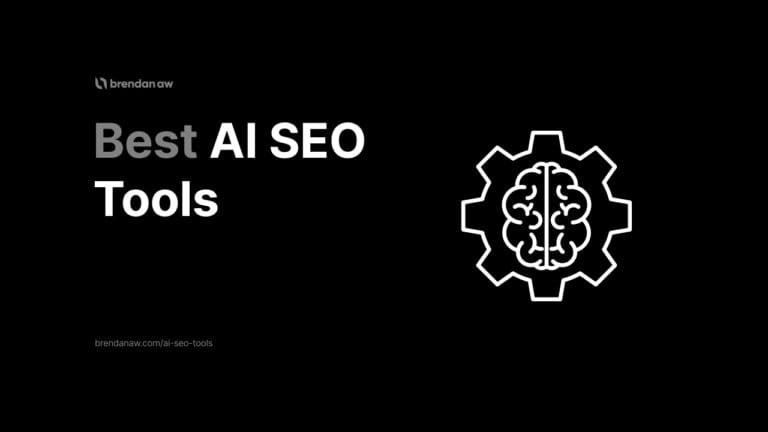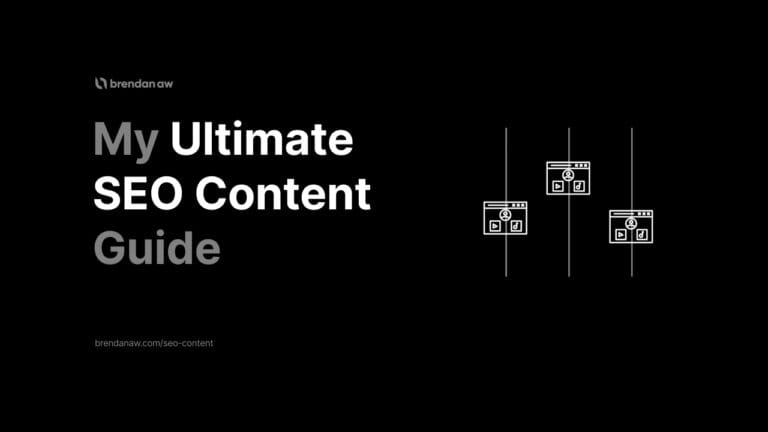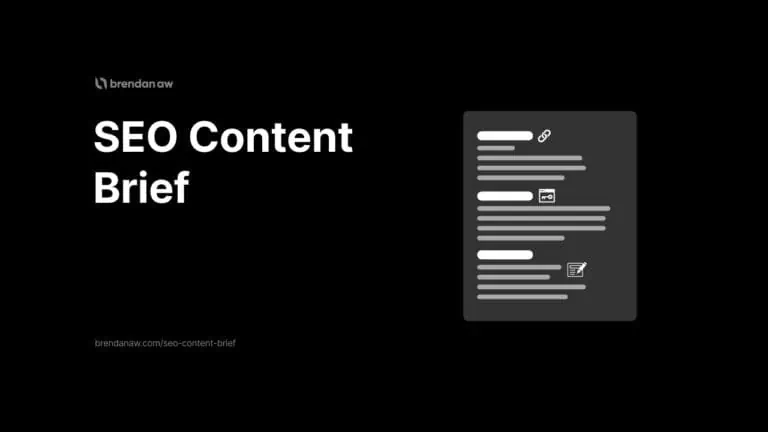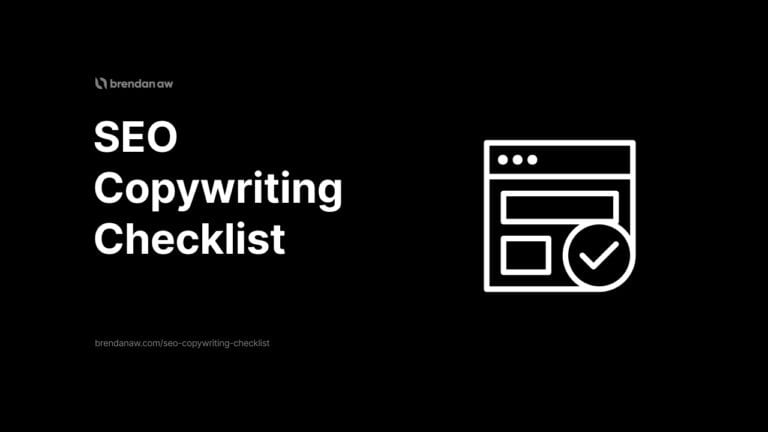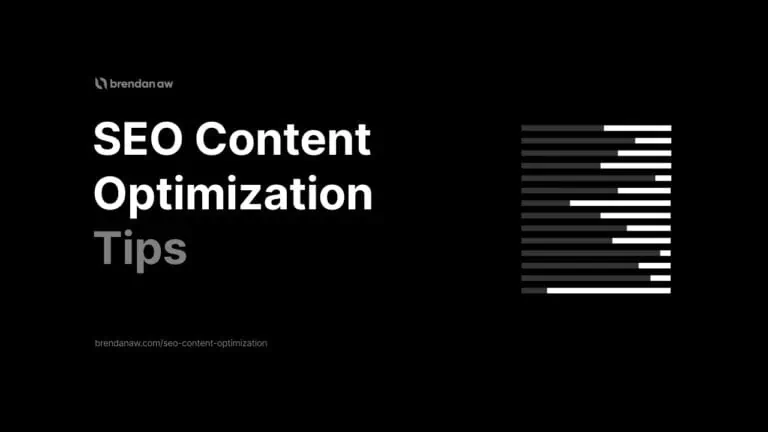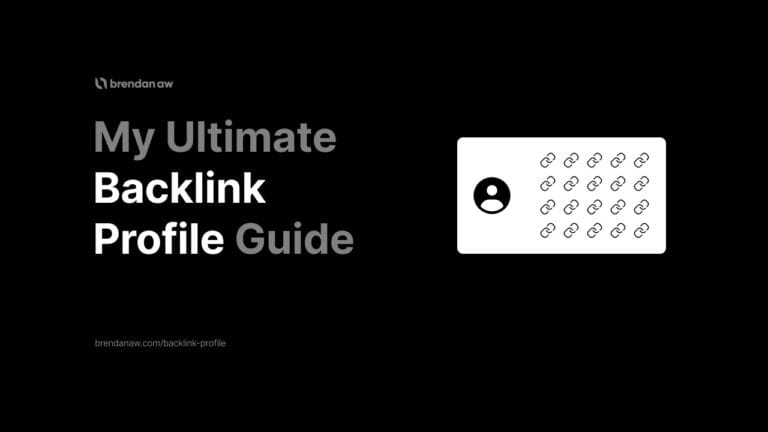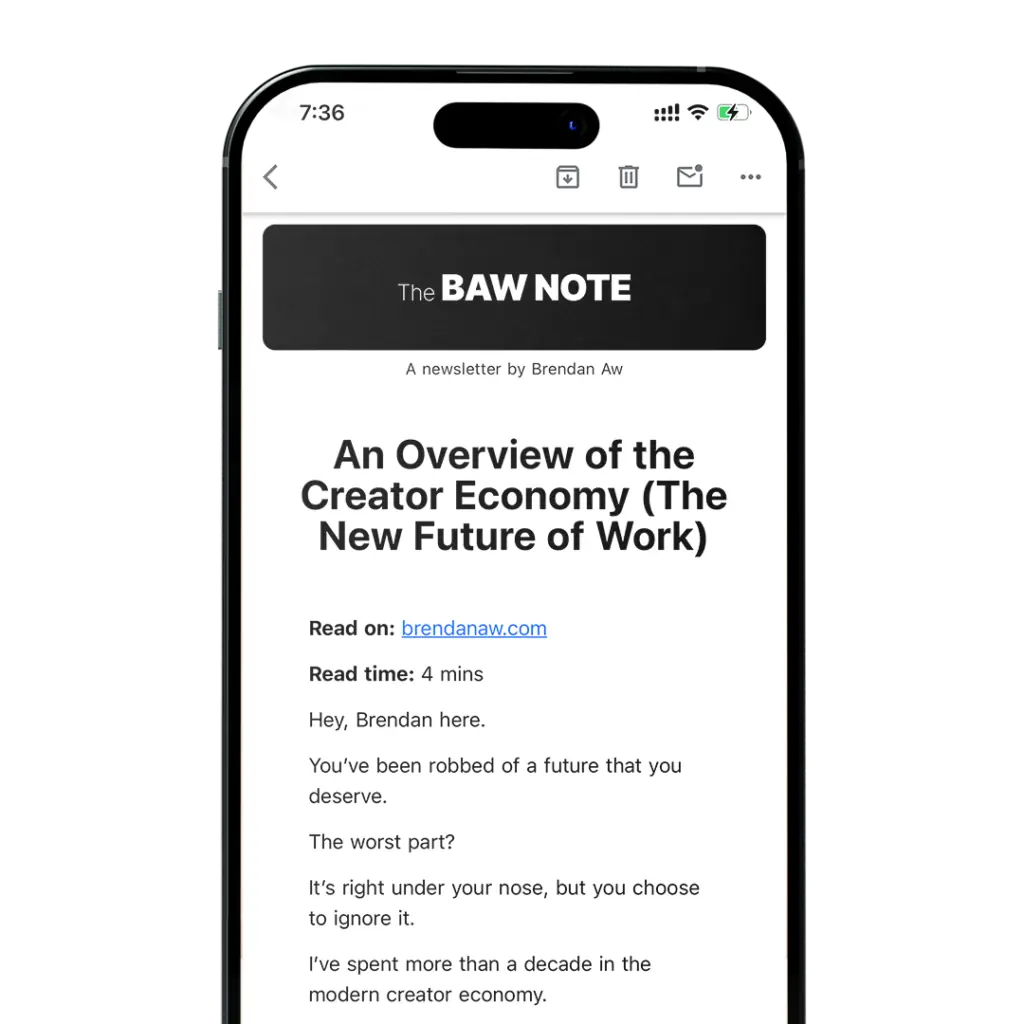SEOs are fearing the worst.
And as creators with blogs…
We better keep on our toes.
Google just recently announced their latest version of search that’s powered by AI technology.
This new function generates a snapshot that succinctly summarizes answers to a query.
Websites might now have a tougher time competing for valuable real estate on the SERPs.
Still, there’s reason to believe that Google won’t give up sending traffic through SEO.
A lot of their revenue comes from ads (a whopping $32.78 billion annually). They wouldn’t want to hurt these publishers’ income by tanking their organic traffic.
Right?
Let’s explore how will AI affect SEO and the future of search.
How is AI Impacting SEO Right Now?
Google has already used AI techniques and language processing to understand search queries.
One of the most obvious ways is the “personalized results” feature.
Some users can get more tailored results in the “About This Result” panel. Google is basing this on search activity plus other factors.
AI-powered voice search assistants like Siri and Alexa have also been impacting SEO.
Developers trained AI algorithms to understand natural language queries. That’s why many SEO strategists have shifted their focus to using conversational keywords.
This includes paying more attention to question keywords, long-tail keywords, and local SEO.
Lastly, AI predictive analytics also plays a big role in content creation.
One example is Google Trends which uses AI-based models to predict ranking results.
Many marketers rely on these kinds of tools to identify good topics for content.
It is a helpful tool, but it makes the landscape more competitive at the same time.
Ultimately, this competitiveness results in the best user experience.
Searchers will get the most relevant results.
How Will AI Change the Future of Search?
AI has already been changing SEO for quite a while.
In 2015, Google launched RankBrain, a machine-learning algorithm to process and categorize queries. It has shaped the way Google delivers search results ever since.
But it didn’t stop there.
Through the years, AI developments have accelerated at a rapid rate. The more it progresses, the more significant its impact on the industry.
We can expect AI to keep reshaping SEO in the following ways.
Human Experience Becomes a Key Factor in Evaluating Content
Google will now rank content depending on the creator’s first-hand experience with the subject matter.
Amid the craze over AI-created content…
Google launched an update in one of its quality evaluator guidelines.
In 2014, they launched E-A-T, which stands for Expertise, Authoritativeness, and Trustworthiness.
Fast forward to 2022, they updated this guideline to double E-E-A-T.
They added “Experience” to Expertise, Authoritativeness, and Trustworthiness.
AI brings the risk of each content sounding the same as the other. It’s easy for fluff and low-value material to be prevalent online.
After all, it’s so convenient to generate them.
But Google once again proves its mission is to continue elevating the user search experience.
This means serving users the most helpful, trustworthy, and “people-first” kind of information.
The addition of “Experience” means that the creator should demonstrate first-hand life experience. This is when Google considers a piece of content as trustworthy.
Anecdotes, stories, tips, or any real-life daily experience within the content are signals of trustworthiness.
Trust is at the core of this evaluator guideline. Websites with content that contains real-life experiences will be safer and more reliable in the eyes of Google.
According to Google, “Trust is the most important member of the E-E-A-T family because untrustworthy pages have low E-E-A-T no matter how Experienced, Expert, or Authoritative they may seem.”
Mediocre AI-generated content will be prevalent. However, they might be considered less trustworthy by Google. They all sound the same.
You can use specific tools to make AI content more human, but I predict the focus will shift to creating more personalized content.
Those with a unique voice and real-life perspectives will have the largest impact on SEO strategies across many industries.
SEO Workflow Becomes More Automated
It’s no secret that there are a lot of online publishers that use AI and NLP to generate articles and blog posts.
The Guardian found 50 news websites relying on AI to produce articles.
Many publishers are already relying on AI writing tools to generate content. These certainly give content writers a run for their money.
But SEO is multifaceted. It’s not just about content generation.
There are plenty of other ways to incorporate AI into different aspects of the process.
AI has become bolder. There are already several AI-powered SEO tools that automate SEO tasks.
This includes Technical SEO, On-Page and Off-Page tasks.
These are keyword research, link-building, data analysis, and more.
While all this sounds exciting and very innovative, take note that AI tools in SEO aren’t new.
In fact, a lot of popular tools such as Ahrefs, SEMrushn, and SEO Surfer are already powered by AI in some capacity.
Still, I predict an increased amount of automation for some tasks.
For example, Alli AI can automate sitewide code to improve Technical SEO, and NeuronWriter can optimize On-page SEO to rank higher on search engines.
As AI tools continue to build more features, artificial intelligence may become increasingly integrated into the SEO workflow.
AI Will Drive Traffic and Data Analysis
One proof that traffic analysis will grow due to AI is that Google Analytics has decided to transition to GA4.
Google Analytics will retire its cookie-based version (Universal Analytics) to give way to an AI-powered one.
That’s a big deal because Google Analytics is one of the most used analytics tools.
This move was made to cope with stricter data control and privacy policies such as the General Data Protection Regulation.
To fill in the gaps left by missing data, Google decided to use predictive analysis powered by AI and machine learning.
So, even without cookies, GA4 can still track users’ online behavior on websites and applications.
Through the help of AI and machine learning, GA4 can collect more accurate data about audiences across multiple platforms.
Also, its new predictive “insights” panel feature will help detect emerging trends or warn against irregularities in the data.
These automated insights will help SEOs better identify opportunities. They can make more informed decisions at a more efficient rate.
Data used to be manually interpreted in the past. More business owners, SEOs, and marketers will have access to useful automated insights.
With SEOs having more comprehensive data, campaigns will likely be more targeted and personalized.
Overall, all these developments in AI contribute to a better, more user-friendly experience for the searchers.
How to Future-Proof Your Content Against AI
As AI becomes more intelligent, the higher the risk of your website becoming obsolete.
That is if you don’t do something about it.
It’s no question that AI will create a more competitive landscape for SEO.
The bar will be higher for quality content. There’ll be more competition in getting your audience to share.
But with the right strategy, you can future-proof your content against AI.
Leverage AI to Work More Efficiently
To protect yourself from AI, you got also got to use AI. That’s the paradox.
Learn to leverage AI to your advantage.
Working for SEO entails a lot of mundane tasks. Sometimes, you must optimize dozens of images, interpret large amounts of data, and conduct tedious keyword research.
Imagine you’re doing all these. Meanwhile, your competitors complete these a fraction of the time using AI.
You’ll be left in the dust…
If you want to keep your campaigns competitive, maximize AI tools and learn to automate tasks.
You’ll have more resources and energy to focus on creating engaging content that way.
It’s also not just about streamlining your work.
Using AI tools will put you at a competitive advantage. You’ll gain regular access to in-depth consumer insights when using them.
Highlight Real-World Experience and Human Empathy
While it’s good to use AI tools to automate mundane tasks, it can be dangerous to rely heavily on them when optimizing SEO content.
ChatGPT and other NLP writing software may be fast in producing generic material.
But, they’re not impactful in replacing something high-quality and valuable.
Remember that Google wants to give searchers the most helpful information possible. They’re always on the lookout for what’s most trustworthy and credible.
So if you want to get your content to rank, it’s best if your content contains personal anecdotes and insights.
Google loves these things, as proven by their E-E-A-T update.
Remember that you’ll also now be competing with AI-generated search summaries.
That’s another thing your website has to worry about.
SGE efficiently provides succinct and valuable snapshots of answers to a query. Still, people would always want to know more.
When you let your voice and perspective shine, you can connect with your audience on a deeper level.
AI can’t beat that.
Be Quick to Grab Optimization Opportunities
You can’t have a “don’t fix it when it’s not broken mentality” when you want to remain competitive.
Thanks to AI, predictive analytics will become more advanced. Many marketers will up their game by always being on top of trend insights.
Rankings are constantly fluctuating. Even if you’re already on the top page, watching for optimization opportunities is needed to keep your rankings.
You need to differentiate yourself from AI content.
How Will AI Affect SEO (FAQs)
Will SEO Be Taken Over by AI?
It’s highly unlikely that AI can take over the SEO industry entirely. While advancements in AI have done a lot to improve the industry, human insight will still be greatly valued.
That is on the part of search engines and humans alike. AI can automate many aspects of the SEO workflow. This includes technical audits, data analysis, keyword research, etc.
It can draw analysis from a large amount of data in less time than manually.
Still, human creativity and expertise are required when developing engaging campaigns.
People would always be drawn to a more personalized approach. That’s something that AI can’t replace.
Does Google Penalize AI Content?
Google does not penalize AI content. AI-generated content can still be competitive as long as they’re informative.
However, they can have difficulty beating high-quality content with real-life experience.
According to Google’s updated E-E-A-T quality guidelines, first-hand human experience is a factor in determining whether a piece of content is trustworthy.
Thus, this type of content will be prioritized in search.
How Will SEO Be Impacted by AI?
Google Search results will become more targeted and personalized. Users will have access to higher-quality and more relevant information than ever before.
SEO professionals can also leverage AI to their advantage.
It is a tool that positively revolutionizes the industry. There’ll be automation of mundane tasks, resulting in a more streamlined and efficient workflow.
Analysis of big data can be done more quickly. They can be packaged in neat, useful tidbits of insights. Marketers can use these in building better campaigns.
Overall, there are a lot of good things to forward to.
To Sum Up
AI is reshaping the SEO industry in a lot of ways.
It is changing how work is done and how Google qualifies content.
It’s also making its mark on how data is analyzed and how trends are predicted.
While bloggers, businesses, marketers, and SEO professionals have a legit reason to be scared, you shouldn’t worry that much.
Leverage AI to your advantage but don’t abuse it and get caught by Google.
They prioritize real-life experience in search results.
The bottom line, AI will impact the SEO industry, but it won’t be able to replace human expertise.



